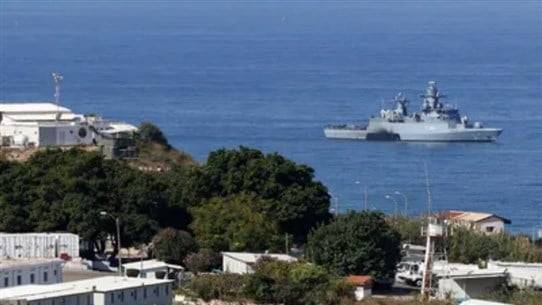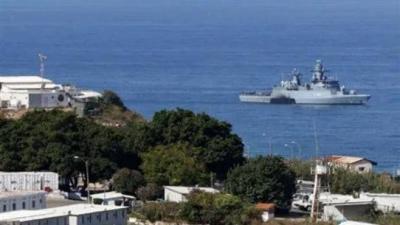The conclusions of two international credit rating institutions aligned on an initial positive assessment for Lebanon and its economy following the completion of the maritime border demarcation with Israel. This aligns with previous estimates by "Asharq Al-Awsat," which confirmed, based on insights from a senior banking official, that recent developments and explicit U.S. support "will incentivize international rating agencies," particularly regarding the recognition in their upcoming periodic reports of the anticipated impact on the sovereign credit rating, which is currently at a "default" level for government-issued debts, as well as the expected improvement in the state’s financial solvency, despite severe shortages of foreign currency liquidity.
In the latest report from Moody's, the agency classified the demarcation agreement as a positive step for Lebanon, considering it "provides a favorable geopolitical climate to attract international exploration companies during the exploration phase." Thus, it viewed that "extracting any gas resources will help Lebanon mitigate its chronic energy deficit and begin an economic recovery program." However, the agency noted that "the country’s sovereign rating is unlikely to change in the absence of a comprehensive restructuring of public debt due to the intensity of macroeconomic, financial, and social challenges," as well as the agency's forecasts of losses exceeding 65% for private sector creditors.
The nominal total of the government’s foreign currency debt portfolio (Eurobonds), excluding accrued interest, amounts to approximately $31 billion, with maturities extending until 2037, predominantly held by international companies and investment funds, in addition to the "Central Bank" and the local banking sector. This entire debt became due following the decision by the previous government, led by Hassan Diab, in the spring of 2020, to suspend payments on this portfolio to negotiate directly with creditors.
Consequently, the issue is also tied to finalizing the agreement with the "International Monetary Fund." Concurrently, the international rating agency Fitch noted in its latest report that the maritime border agreement that Lebanon made with Israel "will open the door for it to explore its oil wealth, thereby allowing for an improvement in its sovereign rating over the long term"; as it linked the extraction process to the necessary reforms but warned that the outcomes are uncertain and fraught with implementation risks.
In addition to benefiting from Lebanon's hydrocarbon resources, Moody's also highlighted that the agreement "allows for the start of exploration of the Qana field in Block 9," pointing out that it cannot be confirmed whether hydrocarbon resources exist in the block, and that extracting oil and gas could take approximately three to four years. It also noted that "the agreement comes at a time when electricity supply in Lebanon has deteriorated to its lowest levels, amid a shortage of fuel oil, knowing that the government is now relying on shipments of Iraqi fuel, and it is in the process of finalizing a financing agreement with the World Bank to import gas from Egypt via the Arab Gas Pipeline."
However, it noted in the same context that Lebanon receiving funding from the "World Bank" is contingent on implementing reforms, such as auditing "Electricité du Liban," and transitioning to cost-reflective tariffs, noting that the Ministry of Energy has already decided to begin increasing electricity rates next month by at least 10 cents for the first tier, rising to 27 cents per kilowatt in higher tiers.
Conversely, Moody's mentioned that the agreement with the "International Monetary Fund" could provide Lebanon with aid amounting to $3 billion, representing an opportunity for Lebanon to attract external aid, provided that the agreed-upon reforms are implemented, such as adopting the required legislation and decisions concerning "capital control," banking secrecy, normalizing the banking sector, and unifying exchange rates. However, the agency noted that the implementation of reforms has been progressing slowly since the parliamentary elections in May. It also highlighted the need to form a new government and elect a new president to avoid a presidential vacuum at the end of this month.
For its part, Fitch noted that while the details of the agreement have not been published yet, statements from officials suggest that Lebanon will have full exploration and extraction rights in the Qana field, while compensation will be made to Israel by the field operator for its share. It is worth noting that the consortium "TotalEnergies" had previously secured exploration rights in Block 9, where the majority of the Qana field is located.
In this context, the agency reported that the caretaker Prime Minister of Lebanon, Najib Mikati, had requested the operator of Block 9 to commence exploration immediately. Regarding implementation risks, Fitch observed that exploration in Block 4 did not yield commercially viable discoveries, and that developing a legal framework for the extraction process may be delayed due to political disputes in Lebanon. Additionally, it mentioned that the "International Monetary Fund" has not yet approved the distribution of the $3 billion due to the Lebanese state’s failure to complete the promised reforms. It also noted that the inconclusive results of the parliamentary elections and the potential for a presidential vacuum could hinder the implementation of these reforms.




